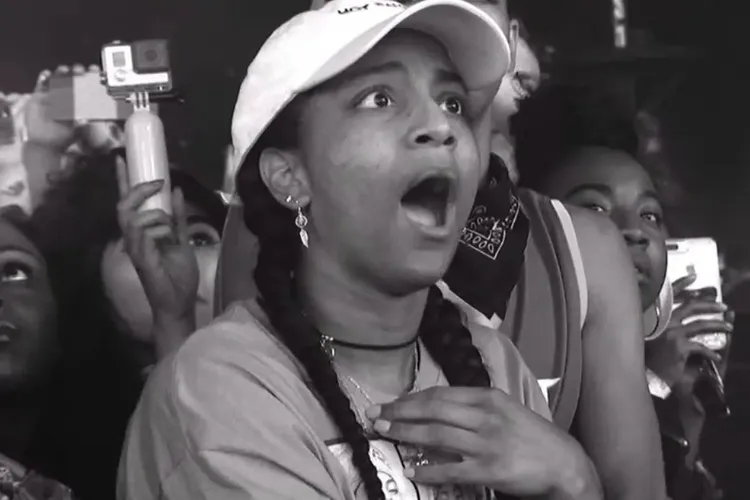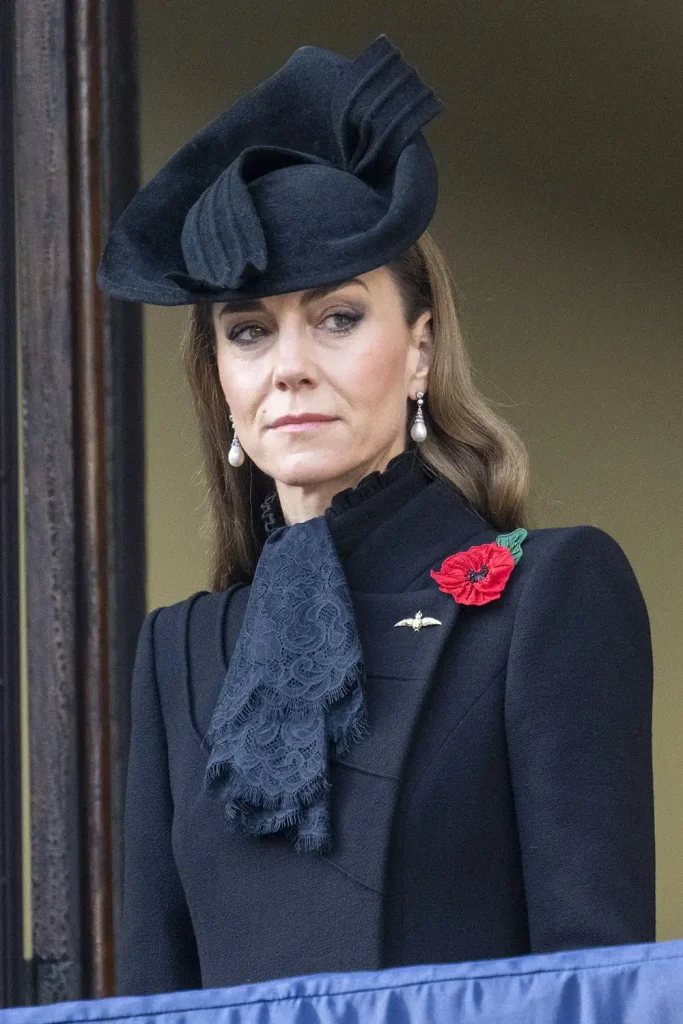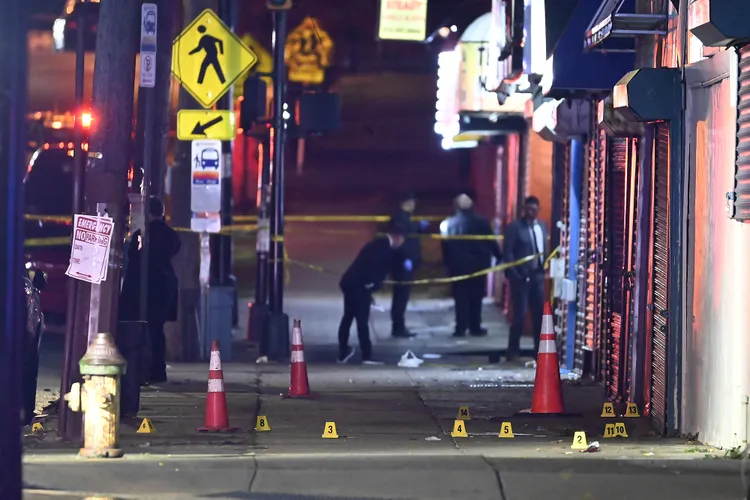She Went Viral for Her Tearful Beyoncé Reaction at Coachella — Now, 25-Year-Old Sydney Hardeman Has Died Months Before Her Wedding, Leaving a Heartbroken Family and Fans Asking How Someone So Full of Joy Could Be Suffering in Silence
In 2018, millions of viewers paused mid-scroll when the camera caught one unforgettable face in the crowd at Coachella. The moment Beyoncé stepped onto the stage and opened one of the most iconic festival performances of all time, a young woman in the audience froze in shock — eyes wide, hand covering her mouth, tears welling instantly. It was a reaction so raw, so unfiltered, that Netflix later included it in the Homecoming documentary. That woman was Sydney Hardeman, a lifelong Beyoncé fan with the kind of expressive joy that made strangers feel connected to her in seconds. For a brief moment, she became the face of every fan whose life had been shaped by music and the artists who feel like family.
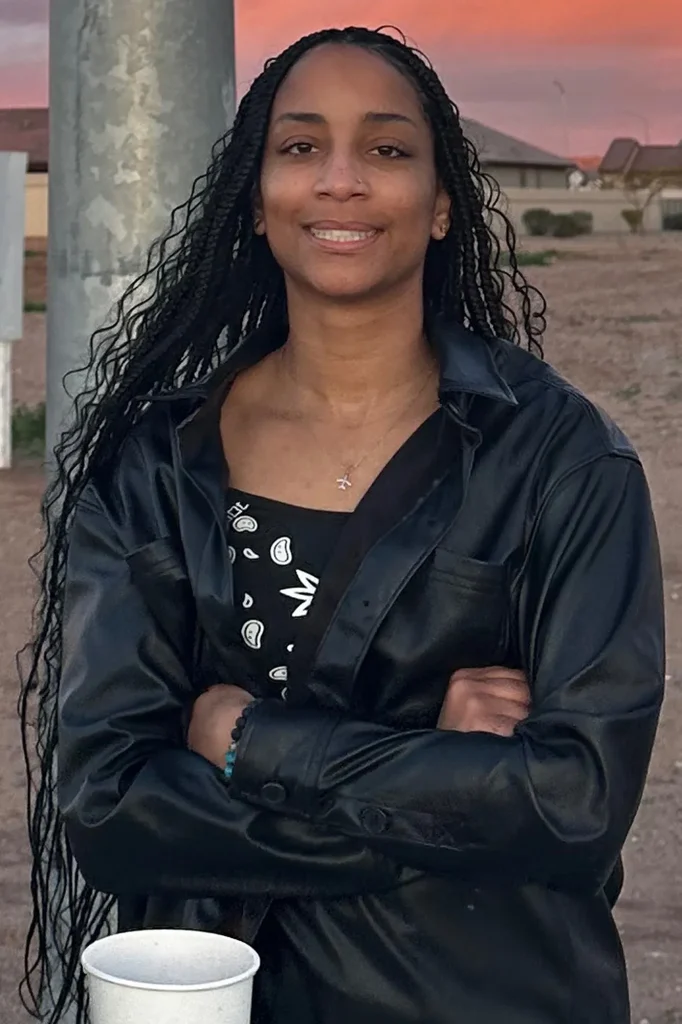
Sydney Hardeman has now died at 25.
Her mother, Jamie Hardeman, confirmed that Sydney died by suicide on November 8 in Dallas, Texas, just months before her planned wedding. Her family shared the news publicly not to sensationalize it, but because they wanted people to understand the complicated truth: someone who could radiate so much visible joy in public could also be fighting a private battle too heavy to carry in silence.
Sydney was not a celebrity in the traditional sense. She didn’t build a following intentionally, didn’t chase virality, didn’t monetize her moment. The clip of her reaction spread because fans recognized themselves in her stunned expression. It was a deeply human moment captured in a sea of cell phones. She covered her mouth, eyes wide, as Beyoncé delivered the first notes. The shot lasted only seconds, but her image became instantly recognizable among Beyoncé’s fan base — the embodiment of what it feels like when someone you admire makes history in front of your eyes.

That same joy followed Sydney home. Family members describe a daughter and sister who loved fiercely, who cared deeply, who approached life with both softness and humor. She had plans, not just dreams. She was engaged and preparing for her wedding. She had recently posted a series of joyful photos from bridal celebrations, including snapshots filled with laughs and handwritten notes to her future bridesmaids. None of it looked staged. All of it looked like a young woman moving forward into a life she was excited to build.
Her mother, Jamie, said in interviews that Sydney’s passing came as a profound shock. “I don’t think any of us saw the depth of her pain,” she said, choosing her words carefully, not out of shame, but out of grief. The family made the difficult choice to speak openly so that others might recognize similar struggles in the people they love. She emphasized that Sydney was loved deeply — and yet, even in a supportive environment, mental health struggles can remain invisible.
Sydney was a proud Beyoncé fan long before the moment that made her recognizable. She grew up on the music, the message, the spirit of empowerment embedded in every performance. Friends recall that she turned Beyoncé releases into full-scale events — listening parties, themed outfits, countdown messages. Coachella was not just a concert for her. It was a pilgrimage. She saved for months. She coordinated outfits and travel with friends. She knew Beyoncé was preparing something monumental, but she could never have anticipated the scale of what Homecoming would become.
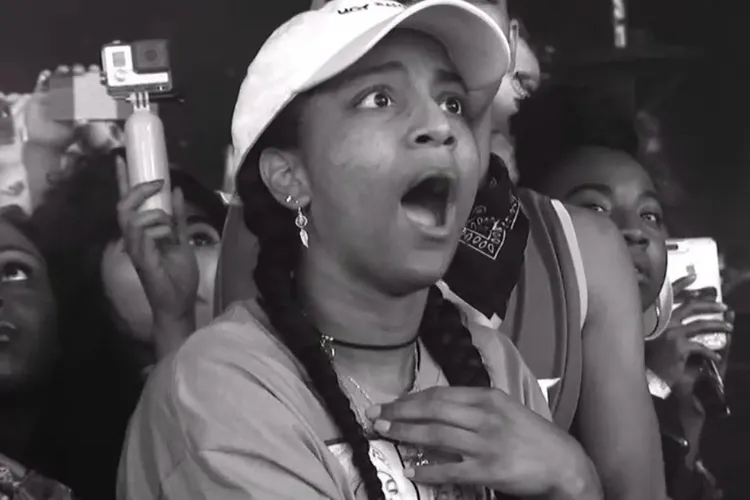
When Beyoncé walked onstage flanked by a live marching band, Sydney’s instinctive reaction became part of music history. Even Beyoncé fans who never knew her name knew her face — that vulnerable shock of witnessing something transcendent. Years later, social accounts still share her clip with comments like “This will forever be me inside when Beyoncé performs.”
But viral moments are incomplete windows into real lives. After the clip circulated, Sydney went back to school, work, relationships, holidays, and everyday routines. She remained active online, where friends said she filled timelines with wit and lightness. She celebrated birthdays. She posted photos of her engagement ring. She spent time with family. There was no sign, at least publicly, that her life was taking a private turn into emotional distress.
That disconnect — between outward joy and internal pain — is something mental health experts have long emphasized. In the wake of Sydney’s death, her family hopes that her story will remind people to check on those who seem “happy” as much as those who appear withdrawn. People experiencing emotional crises do not always look hopeless. Sometimes they are smiling the day before. Sometimes they are making plans. Sometimes they are showing up for life in ways that seem incompatible with despair.
Sydney’s loved ones describe her as deeply empathetic and fiercely loyal. They say she cared for others effortlessly, often checking in when someone needed comfort. Yet like many young adults, she shouldered pressures quietly — questions about work, the future, expectations, inner standards she held herself to. Her mother said that Sydney had recently been adjusting medications and that complications from that process contributed to her distress.
The grief surrounding her death is layered. It is grief for a 25-year-old life cut short, for a wedding that will never happen, for milestones that will remain imagined. It is also grief tied to the cruel paradox of visibility: millions watched her experience joy in a viral moment, yet no one beyond her closest circle saw her pain.
The Beyoncé fandom has responded with an outpouring of love. Fans have posted videos of Sydney’s reaction again, this time not to laugh or scream along — but to honor her. Messages include “She deserved to grow old with the same joy she showed that day” and “The Hive remembers you.” Some fans wrote that they couldn’t stop thinking about how her pure reaction reflected what Beyoncé’s music means to people who feel uplifted by representation and artistry.
There is something poetic, and devastating, in knowing that Sydney’s most public moment showcased the most honest kind of happiness — the kind that can’t be faked. Those who knew her say that this was not a performance. That was Sydney in her most instinctive state: feeling everything, openly, without fear of vulnerability. Her mother said she hopes people remember that version of her daughter, not only the video, not only the tragedy, but the way she loved things loudly.
The broader conversation her death reawakens is the importance of reducing shame around mental health — especially among young adults who feel pressure to appear composed and thriving. Sydney’s story is a painful example of how outward confidence and visible joy can coexist with internal struggle. Friends have shared that she was always the one hyping others up. She rarely let people see her break. That strength, while admirable, can sometimes become a dangerous form of silence.
Sydney Hardeman was more than a viral reaction. She was a daughter, a fiancée, a friend, an aunt, a woman who loved music, fashion, laughing loudly in restaurants, quoting Beyoncé lyrics, and staying up for midnight album drops. She had a life full of ordinary moments that mattered deeply to the people she loved. Her family says they will not let her be remembered only for how her life ended, but also for the way she lived — vibrantly, emotionally, and without cynicism.
As tributes continue, one thing is certain: the image of Sydney at Coachella — crying, stunned, overwhelmed by joy — now holds a different weight. It is a reminder that life is fragile, that joy can be real even when pain is hidden, and that the internet’s most shared moments are only fractions of someone’s truth.
Her family has asked that anyone struggling reach out for help. They have chosen openness over secrecy in hopes that Sydney’s story will prevent another silent loss. To them, she will always be the daughter whose heart was too big and too unguarded for this world.
She was 25 years old. She had joy left to live. And she was loved — deeply, loudly, genuinely.
If you or someone you know is struggling emotionally, confidential support is available.
United States: Call or text 988 (Suicide & Crisis Lifeline)
International readers: Please check local crisis resources — help exists in every region.
